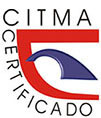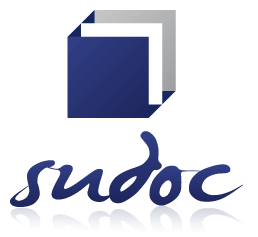Approximation to the study of adjective speeches in the speaking community of the city of Barranquilla
Keywords:
Linguistic variant, social variable, phraseology, locution, phraseological unitAbstract
This scientific article is framed within the line of sociolinguistics, a discipline that allows us to identify the way a community speaks, as well as its incidence in the transformation processes that occur within the language, reflected in the linguistic variety. The social variables taken are: gender, level of education and age; as for the linguistic variants, a fixed variant was worked on: a general fixed variant: phraseology and specific variants such as adjective locutions. The main objective is to find out if this type of lexical resources is used significantly in the Barranquilla-speaking community. For this purpose, a corpus based on the Diccionario Fraseológico Documentado del Español Actual (2009) by Manuel Seco, Olimpia Andrés and Gabino Ramos was used. The sample consisted of 48 men and 48 women, three levels of education and four age groups. The methodology employed is of a sociolinguistic nature, where the investigative approach is based on the information analysis. In particular, the result derived from the social variables, in line with the linguistic variant prepositional syntagm plus adjective, allowed us to demonstrate that women make a greater use of adjective locutions. The identities they entail tend to imply a boundary marking function through a particular use of language and a highly marked internal coherence, thanks to the mastery of certain linguistic features.
Downloads
References
AREIZA, R., CISNEROS, M. Y TABARES, L. (2012). Sociolingüística. Eenfoques pragmático y variacionista (2 ed.). Bogotá: Ecoe Ediciones.
BOSQUE, I. Y GUTIÉRREZ, R. (2008). Fundamentos de sintaxis formal. Madrid: Akal. Disponible en: https://books.google.com.co/books?id=Uy4n9MzmDJQC&pg=PA625&l pg=PA625&dq=ejemplos+adjetivos+argumentales&source=bl&ots=r8UyQvegza&sig=bA4cu909MS8pdIHUjyQ9kqr5A9A&hl=es&sa=X&ved=0ahUKEwjZ7IL9bTaAhWF2VMKHSIYCQQQ6AEISjAE#v=onepage&q=ejemplos%20adjetivos%20argumentales&f=false
BOSQUE, I., Y DEMONTE, V. (1999). Gramática descriptiva de la lengua española. Madrid: Espasa Calpe.
CASARES, J. (1950). Introducción a la lexicografía moderna. Revista de Filología Española. España: Instituto Miguel de Cervantes. Anejo- LII.
CORPAS, G. (1996). Manual de fraseología española. Madrid: Gredos.
CORPAS, G. (2003). Diez años en investigación en fraseología. Análisis sintáctico-semánticos, contrastivos y traductológicos. España: Lingüística Iberoamericana.
COSERIU, E. (1981). Principios de semántica estructural (2a ed.). Madrid: Gredos.
COSERIU, E. (1986). Introducción a la lingüística. Madrid: Gredos.
COULMAS, F. (Comp.) (2013). Manual de sociolingüística. Bogotá: Instituto caro y Cuervo serie traducciones IX.
DE SAUSSURE, F. (2016). Curso de Lingüística general. México: Fontamara.
CHARAUDEAU, P. Y MAINGUENEAU, D. (COORD). (2005). Diccionario de análisis del discurso. Buenos Aires: Amorrortu.
GARCÍA-PAGE M. (2008). Introducción a la fraseología española: estudio de las locuciones. Barcelona: Anthropos.
GÓMEZ, M. J. A., JOSE, M. (2007). La investigación educativa: Claves teóricas. Madrid: McGraw- HILL.
GUIDDENS, A. (1989). La sociología. Madrid: Alianza Editorial.
HALLIDAY, M.A.K. (2005). El lenguaje como semiótica social. México: Fondo de Cultura Económica.
HENAO, J. I. Y CASTAÑEDA, L. E. (2001). El parlache. Medellín: Universidad de Antioquia.
LEECH, G. (1974). Semántica. Madrid: Alianza Universidad.
LÓPEZ, H. (1994). Métodos de investigación lingüística. España: Ediciones Colegio de España.
MARTINET, A. (1974). Elementos de lingüística general. Madrid: Editorial Gredos.
MARTÍNEZ, J. (1996). Estudios de fraseología española. España: Ágora.
MORENO, F. (1990). Metodología sociolingüística. Madrid: Gredos.
MORENO, F. (2005). Principios de sociolingüística y sociología del lenguaje. Barcelona: Ariel.
NIETO, L. F. (2014). Las locuciones adjetivales en cinco diccionarios de la lengua española. Cuadernos de Lingüística Hispánica, 24, 61-84. Tunja: Uptc.
Real Academia Española (2010). Nueva gramática española manual. Madrid: Espasa Calpe.
RUIZ, L. (1998). La fraseología del español coloquial. España: Ariel.
SECO, M.; ANDRÉS O. Y RAMOS, G. (2009). Diccionario fraseológico documentado del español actual. Locuciones y modismos españoles. España: Aguilar Lexicografía.
SILVA-CORVALÁN, C. (2001). Sociolingüística y pragmática en el español. Washington, D.C.: Georgetown University Press.
Downloads
Published
How to Cite
Issue
Section
License

This work is licensed under a Creative Commons Attribution-NonCommercial 4.0 International License.
Usted es libre de:
Compartir — copiar y redistribuir el material en cualquier medio o formato
Adaptar — remezclar, transformar y construir a partir del material
La licenciante no puede revocar estas libertades en tanto usted siga los términos de la licencia
Bajo los siguientes términos:
Usted es libre de:
Atribución — Usted debe dar crédito de manera adecuada, brindar un enlace a la licencia, e indicar si se han realizado cambios. Puede hacerlo en cualquier forma razonable, pero no de forma tal que sugiera que usted o su uso tienen el apoyo de la licenciante.
NoComercial — Usted no puede hacer uso del material con propósitos comerciales.
No hay restricciones adicionales — No puede aplicar términos legales ni medidas tecnológicas que restrinjan legalmente a otras a hacer cualquier uso permitido por la licencia.


















